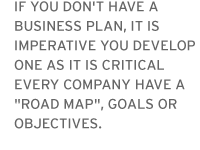 Construction is a complicated industry that faces ever-changing conditions. 2010 will be no exception as contractors will be feeling the pressure of a struggling economy, increased costs, minimal work and increased competition. Those who are not prepared will feel significant pain and could ultimately fail. The following provides some suggestions for managing the year ahead:
Construction is a complicated industry that faces ever-changing conditions. 2010 will be no exception as contractors will be feeling the pressure of a struggling economy, increased costs, minimal work and increased competition. Those who are not prepared will feel significant pain and could ultimately fail. The following provides some suggestions for managing the year ahead:
- Work with a team of construction oriented professionals you can count on to assist in decision making. A bond agent well versed in contract bonding should be a priority. If your agent is not knowledgeable or does not have the market to fit your company's needs, then there is little other professionals can do to help with you bonding needs. A CPA that specializes in construction is a must. Attorneys, bankers and insurance agents are also key advisors.
- Work to provide a strong relationship with your surety and provide full disclosures. This means communicating good and bad news to your surety bond agent and underwriter if or when problems begin. If possible, many sureties will work with the contractor to help it through the problem. The surety is a critical partner though good times and bad and can help owners and contractors manage the changing economic climate. Bottom line, the surety wants you to succeed as much as you do.
- Have a bank line of credit available to support the company's business plan.
- Evaluate your bank. Contractors should critically evaluate the strength of their bank and that bank's knowledge of and "commitment" to the construction industry. When credit tightens, banks that do not have a deep commitment to contractors may pull back from an entire industry, regardless of the underlying credit worthiness of their customer.
- Bond subcontractors, especially when they represent a key trade, a significant portion or sole source of the work, you are unfamiliar with their company, or there are questions on their availability, capacity, ability or financial strength.
- Don't take on more than you can manage. Stay within your capabilities. Think twice before you consider work outside your known geographical area and niche.
- Do what you do best. Protect your top talent, who will manage projects well no matter what the market conditions are.
- Don't "buy" a job to keep employees busy—adjust overhead and maintain profit margins. Bid the job, not the competition.
- Don't be too anxious to fill your backlog. You have a choice on what projects to chase and what owners to work with. Evaluate the risk. Sometimes a contractor's best job is the one it does not get. One bad project can tear down a company.
- Demonstrate discipline in applying appropriate margins to the risk profile of work and refuse to accept unreasonable and inequitable risk in contracts. Understand the contract, and push back for amendments where warranted.
- Construction is cyclical and contractors should prepare for the pent-up demand that will build during recession. Protect your core resources and be ready to bid work when the economy rebounds.
- Update your business plan accordingly. If you don't have a business plan, it is imperative you develop one as it is critical every company have a "road map," goals or objectives.
- Showing signs of a weak balance sheet? Strengthening can usually occur by reducing revenue and overhead, as well as concentrating on collecting receivables and liquidating portions of equipment and inventory.
- Evaluate the quality of a potential client. Your bond agent should be able to assist here as well.
It is a variety of successes that make a good contractor, and it is a process that continually evolves. Successfully managing your business in both good times and bad is critical to your survival.

